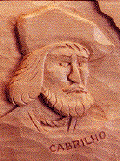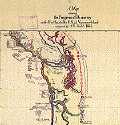
|
|
|
|
|
Germany (Hamburg) |
 |
State election. Results : The Social Democratic Party wins 36.5% of the vote, the Christian Democratic Union 26.2%, the Partei Rechtsstaatlicher Offensive 19.4%, the Greens 8.5%, and the Free Democratic Party 5.1%. |
|
Poland |
 |
General election. Results : Polish voters have handed victory to the opposition Democratic Left Alliance (SLD), a party with roots in the country's former communist regime, exit polls show. Exit polls suggest the Democratic Left is set to take around 41% of the vote, which would leave it just short of an outright majority in parliament. Self-Defence, a noisy farmers group that bitterly opposes European Union membership, won 9% of the vote. League of Polish Families, a party of ultraconservative Roman Catholics, took 6.7%. Peasant Party, a long-established farmers grouping garnered 8.4%, while Solidarity won just 5.5% - it needed 8% to stay in parliament. Party leader Leszek Miller, 55, who is poised to become Poland's next prime minister, has pledged to stay firmly in the NATO (news - web sites) alliance and support any military response to the Sept. 11 terrorist attacks in the United States. He also says he will keep Poland, a country of 39 million, on course to join the European Union |
|
France |
 |
Senatorial elections. Renewal of 1/3 of the Senate. Results : Chifres de la composition du Senat avant et après l'election en sièges par party : Rassemblement Pour la République 29/26 ; Union pour la Démocratie Française 27/28 ; Parti Socialiste 21/29 ; Démocratie Libérale 8/3 ; Divers droite 9/4 ; Parti Communiste 4/8 ; Radical de gauche 2/2 ; Divers Gauche 1/1 ; Les Verts 0/1 ; |
|
Russia (Rostov Oblast) |
 |
Gubernatorial election. Results : Incumbent Governor Vladimir Chub won reelection in the ballot. Chub polled 78.1 percent of the vote, and the category "against all candidates" came in second with 12.68 percent. The only other registered candidate, Petr Voloshin, the head of Zimovnikovskii Raion, came in third with 7.4 percent. |
|
Macao |
 |
Election for 2nd Legislative Assembly of Macao. Results : The Association for New Democratic Macao led by Ng Kuok Cheong was elected at the head of the poll, obtaining 16,960 votes. |
|
United Kingdom (Liberal Democratic Party) |
 |
Liberal Democrats hold annual conference - Bouremouth The Liberal Democratic Party, Britain's third party, can open the conference with jubilation about their gains in the national elections in May. They won 52 parliamentary seats, against 46 in 1997. Though they describe the result as the best in 70 years, it's a hollow victory until Britain changes its first-past-the-post electoral system to proportional representation. The focus at the conference is devising a strategy to bring about electoral reform. At issue is the Liberal Democrat alliance with the ruling Labour Party via the Joint Cabinet Committee (JCC). Party leader Charles Kennedy is under pressure to end his party's traditional cooperation with the Government and turn it into a real opposition party with an independent agenda. Though the party needs Government support for a national referendum on proportional representation, early reports suggest Kennedy will scrap the JCC at the conference. Prime Minister Tony Blair has agreed to review the case for electoral reform after the 2003 Scottish elections. |
|
United Kingdom (Labour Party) |
 |
Labour peer Lord Shore dies. His background was solidly middle-class; his father was a Merchant Navy captain and Peter was educated at a Liverpool grammar school and at King's College, Cambridge. He graduated with an Honours degree in history, but later specialised in political economics. After serving with the RAF in the Second World War, he joined the Labour Party in 1948 and became head of the Research Department in 1959. He was elected to Parliament for the London borough of Stepney in 1964, and, with his expertise in research, was the principal draughtsman of Labour's election manifesto for that year. When Harold Wilson arrived at Number 10, Peter Shore became one of the prime minister's parliamentary private secretaries. In August 1967, Harold Wilson put him in charge of economic affairs and made him the youngest member of the Cabinet, just three years after entering the Commons. Became a Cabinet minister without Portfolio, and soon after, Deputy Leader of the Commons. When Labour returned to power in 1974, he became Secretary for Trade, and in 1976, Jim Callaghan made him Environment Secretary. When Labour lost the 1979 election, Jim Callaghan gave Peter Shore the job of Shadow Foreign Secretary. But when he ran for the Labour leadership in 1980 and 1983, a time when the Left were at their peak, he was easily defeated first by Michael Foot, then by Neil Kinnock. Peter Shore became Lord Shore of Stepney when he retired from the Commons in 1997, but as a peer, still resolutely maintained his opposition to any greater ties with Europe. |
|
Zambia |
 |
The national secretary of Zambia's Ruling Movement for Multiparty Democracy, Michael Sata, has resigned from the party, four days after he quit his top ministerial position. Sata's spokesman says he resigned from the party in protest against the manner in which it chose former vice president Levy Mwanawasa as the party's presidential candidate, without following the electoral rules. |
|
Canada (British Columbia) |
 |
Iona Campagnolo is installed as lieutenant governor of British Columbia. Profile : Born on Galiano Island and raised in northern B.C., Iona Campagnolo's public service began in Prince Rupert in 1966 as a school trustee. A stint in radio saw her named B.C. Broadcast Citizen of the year for 1972. The same year she was awarded the Order of Canada. Serving in parliament during much of the 70s, her name became synonymous with the Liberal Party of Canada. She served in Pierre Trudeau's cabinet. She was the first woman president of her party. Since 1993, she has been the director of the Montreal based International Center for Human Rights and Democratic Development. Recently completing a six-year term, she was the first chancellor of the University of Northern British Columbia. She continually pursues social justice. As chair of the Fraser Basin Council, she is committed to the economic and environmental sustainability of the Fraser River. She is director of The Arctic Institute of North America based in Calgary. |
|
Malaysia (Sarawak state) |
|
Legislative assembly elections. Results : The National Front coalition takes 60 of the 62 seats of the parliament against one for the Democratic Action Party and one for an independent ; Chief Minister Datuk Patinggi Abdul Taib Mahmud is sworn in for a sixth term the next day. |
|
South Korea |
 |
South Korea's Construction and Transportation Minister Ahn Jung-Nam resigned after the opposition had accused him of being implicated in corruption. Ahn was named to the post in a partial Cabinet shake-up in August. He was the fourth construction and transportation minister appointed this year, as his predecessors were sacked or resigned for policy blunders or amid political turmoil. |
VIPS VISITS
|
|
Russian President visits Germany Russian President Vladimir Putin is on a lobbying mission. He wants support from United States allies in NATO for his demand that US President George Bush scrap the Star Wars program and retain the 1972 Anti-Ballistic Missile Treaty. Germany is also a potential ally as a means of persuading Russia's international creditors to ease their pressure for repayment of a multibillion-dollar Soviet-era debt. Berlin's sympathies can't be counted on, as the German Government sees the recent high prices for Russia's oil as Russia's means of repaying its debts. A bargaining chip for Russia could be the 134,000 works of art taken from Germany by Soviet troops during WWII. Germany wants them back, but a decade of negotiations has not persuaded Russia to part with any of the treasures. |
THIS WEEK'S STORY

September 28, 1542
|
Cabrilho's Discovery of California Portuguese were also involved in the exploration of the west coast of North America. In 1542-43, Portuguese-born João Rodrigues Cabrilho and his chief pilot Bartolomé Ferrelo, who may have been Portuguese, were the first Europeans to explore the coast of the present state of California. Sailing for Spain, Cabrilho left in June of 1542 from Navidad on the west coast of Mexico and proceeded north. He reached San Diego Bay in 28, September, becoming the first European to set foot in what is today the state of California. He continued north along the California coast but died in January 1543 from an infection resulting from a broken arm. Ferrelo, his pilot, continued north, possibly reaching the Oregon coast in March 1543. Cabrilho's and Ferrelo's voyages are indicated by light reddish brown and light blue on this reconstructed map compiled by the nineteenth-century German historical geographer Johann Georg Kohl. A student of America's discovery and exploration, Kohl prepared this map, as well as similar maps of the Atlantic and Gulf Coasts, as a graphic device for summarizing and visualizing the area covered by the various explorers. The extent of each explorer's travels is indicated in a different color. |
|
